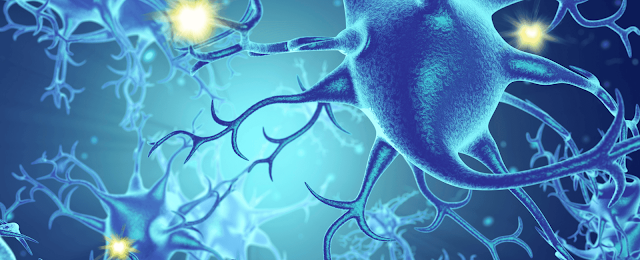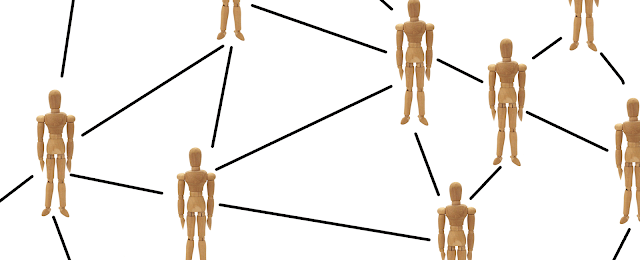Six Domains of Knowledge about Human Nature - Personality Psychology
Six Domains of Knowledge about Human Nature.
The various views of researchers on personality stem not from the fact that one perspective is right and the others wrong but, rather, from the fact that they are studying different domains of knowledge. A domain of knowledge is a specialty area of science and scholarship, in which psychologists have focused on learning about some specific and limited aspects of human nature. A domain of knowledge delineates the boundaries of the researcher’s knowledge, expertise, and interests.
To large extent, this degree of specialization is reasonable. Indeed, specialization characterizes many scientific fields. The field of medicine, for example, has heart specialists and brain specialists, and brain specialists, focusing in great detail on their domains. It is likewise reasonable for the field of psychology to have intrapsychic specialists, cultural specialists, and biological specialists. Each of these domains of personality (intrapsychic, cultural, and biological) has accumulated its base of knowledge. Nonetheless, it is still desirable at some point to integrate these diverse domains to see how they all fit together.
Biological Domain
The core assumption within the biological domain is that humans are, first and foremost, collections of biological systems, and these systems provide the building blocks ( e.g., brain, nervous system) for behavior, thought, and emotion. As personality psychologists use the term, biological approaches typically refer to three areas to three areas of research within this general domain: genetics, psychophysiology, and evolution. The first area of research consists of the genetics of personality. Because of advances in behavioral genetic research, a fair amount is known about the genetics of personality. Some questions this research addresses include the following: are identical twins more alike than fraternal twins in their personalities? What happens to identical twins when they are reared apart versus when they are reared together? Behavioral genetic research permits us to ask and provisionally answer these questions.
The second biological approach is best described as the psychophysiology of personality. Within this domain, researchers summarize what is known about the basis of personality in terms of nervous system functioning. Examples of such topics include cortical arousal and neurotransmitters, cardiac reactivity, the strength of the nervous system, pain tolerance, circadian rhythms (whether you are a morning or night person), and the links between hormones, such as testosterone, and personality.
The third component of the biological approach concerns how evolution may have shaped human psychological functioning. This approach assumes that the psychological mechanisms that constitute human personality have evolved over thousands of years because they were effective in solving adaptive problems. This part of the biological domain of knowledge highlights the implications of an evolutionary perspective for shedding light on the functional aspects of personality.
Intrapsychic Domain.
The intrapsychic domain deals with the mental mechanisms of a personality, many of which operate outside the realm of conscious awareness. The predominant theory in this domain is Freud’s theory of psychoanalysis.
This theory begins with fundamental assumptions about the instinctual system-the sexual and aggressive forces that are presumed to drive and energize much of human activity. Although these fundamental assumptions often lie outside the realm of direct empirical tests, considerable research has accrued that sexual and aggressive motives are powerful, and their manifestations in actual behavior can be studied empirically. The intrapsychic domain also includes defense mechanisms, such as repression, denial, and projection-some of which have been examined in laboratory studies. Although the intrapsychic domain is most closely linked with the psychoanalytic theory of Sigmund Freud, there are modern versions as well. For example, much of the research on power motives, achievement motives, and intimacy motives is based on a key intrapsychic assumption-that these forces often operate outside the realm of consciousness.
Dispositional Domain.
The dispositional domain deals centrally with how individuals differ from one another. As such, the dispositional domain cuts across all the other domains. The reason for this is that individuals can differ in their habitual emotions, their habitual concepts of self, their physiological properties, and even their intrapsychic mechanisms. However, what distinguishes the dispositional domain is that here psychologists are primarily interested in the number and nature of fundamental dispositions. The central goal of personality psychologists working in the dispositional domain is to identify and measure the most important ways in which individuals differ from one another. They are also interested in the origin of important individual differences and in how they develop and are maintained.
Different dispositional or trait theories use different procedures for identifying the most important individual differences. Some use a lexical strategy starting with the thousands of trait-descriptive adjectives within human languages, such as the English language. Dispositional psychologists argue that, over human history, we invented many words to describe a feature of personality if that feature was especially important in social relations. For example, there are many words to describe dominance-assertive, assertive, bossy, domineering bold, and powerful. According to the lexical strategy, if many synonyms for a particular trait, then it is likely to be an especially important trait.
Other trait psychologists use statistical techniques to identify important individual differences. Still, others use particular theories to identify important individual differences.
Cognitive-Experiential Domain.
The cognitive-experiential domain focus on cognition and subjective experience, such as conscious thoughts, feelings, beliefs, and desires about oneself and others. The psychological mechanisms involved in subjective experience, however, differ in form and content from one another. One very important element of our experience entails the self and self-concepts. Descriptive aspects of the self-organize how we view ourselves: our knowledge of ourselves as good or as evil? Are our past successes or past failures prominent in our self-views? Do we envision ourselves in the future as married with children or as successful in a career? How we evaluate ourselves – our self-esteem – is another facet of the cognitive–experiential domain.
A somewhat different aspect of this domain pertains to the goals we strive for. Some personality psychologists, for example, view human nature as inherent goal–directed, stressing the organizing influence of fundamental needs, such as the need for affiliation and the need to influence others. Recent research within this tradition includes approaching personality through the personal projects or tasks that individuals are trying to accomplish in their daily lives. These can range from the mundane, such as getting a date for Saturday night, to the grandiose, such as changing thought in western civilization. Another important aspect of subjective experience entails our emotions. Are we habitually happy or sad? What makes us angry or fearful? Do we keep our emotions bottled up inside, or do we express them at the drop of a hat? Joy, sadness, feelings of triumph, and feelings of despair all are essential elements in our subjective experience and are subsumed by the cognitive–experiential domain.
Social and Cultural Domain.
One of the features of this article is an emphasis on the social and cultural domain of personality. The assumption is that personality is not something that merely resides within the heads, nervous systems, and genes of individuals. Rather, personality affects, and is affected by, the social and cultural context.
At a cultural level, it is clear that groups differ tremendously from one another. Cultural such as the Yanomamo Indians of Venezuela are highly aggressive; indeed, a Yanomamo man does not achieve full status as a man until he has killed another man. In contrast, cultures such as the! Kung san of Botswana is relatively more peaceful and agreeable. Overt displays of aggression are discouraged and bring social shame on the perpetrator. Personality differences between these groups are most likely due to cultural influences. In other words, different cultures may have the capacity to be peaceful as well as the capacity to kill. Which one of these capacities we display may depend to a large extent on what is acceptable in and encouraged by the culture.
At the level of individual differences within cultures, personality plays itself out in the social sphere. Whether we are dominant or submissive affects such diverse parts of our lives as the conflicts we get into with our partners and the tactics we use to manipulate others. Whether we tend to be anxious and depressed or buoyant and optimistic affects the likelihood of social outcomes, such as divorce. Whether we are introverted or extroverted affects how many friends we will have and our popularity within the group. Many of the most important individual differences are played out in the interpersonal sphere.
One important social sphere concerns relationships between men and women. At the level of differences between the sexes, personality may operate differently for men than for women. Gender is an essential part of our identities. Much of what we call gender may have its origins in culture, in how society makes up different rules and expectations for men than for women. Gender also has a biological basis, for example, in hormonal differences between men and women, which we will refer to as sex differences. Other aspects of gender may lie in evolved behavior patterns, which represent adaptions to different pressures that faced men and women in the distant past. Whatever their origins, differences between men and women have long been of interest to personality psychologists.
At the human nature level of analysis, all humans have a common set of concerns they struggle with within the social sphere: (9) all (or nearly all) humans live in groups and (2) all known groups are hierarchically arranged, either formally or informally. This implies that all humans must navigate through the problems of getting along with others and must negotiate a position within the social hierarchy.
Adjustment Domain.
The adjustment domain refers to the fact that personality plays a key role in how we cope, adapt, and adjust to the ebb and flow of events in our day-to-day lives. Considerable evidence has accumulated, for example, that personality is linked with important health outcomes, such as heart disease. Personality is certainly linked with a variety of health-related behaviors, such as smoking, drinking, and risk taking some research has even demonstrated that personality is correlated with how long we live.
In addition to health, many of the important problems in coping and adjustment can be traced to personality. In this domain, certain personality features are related to poor adjustment and have been designated as personality disorders. Chapter 19 is devoted to the personality disorders, such as narcissistic personality disorder, antisocial personality disorder, and avoidant personality disorder. The past decade has witnessed an explosion of empirical research in these areas. An understanding of “normal” personality functioning can be deepened by examining the disorders of personality, much as in the field of medicine, in which an understanding of normal physiological functioning is often illuminate by the study of disease.










